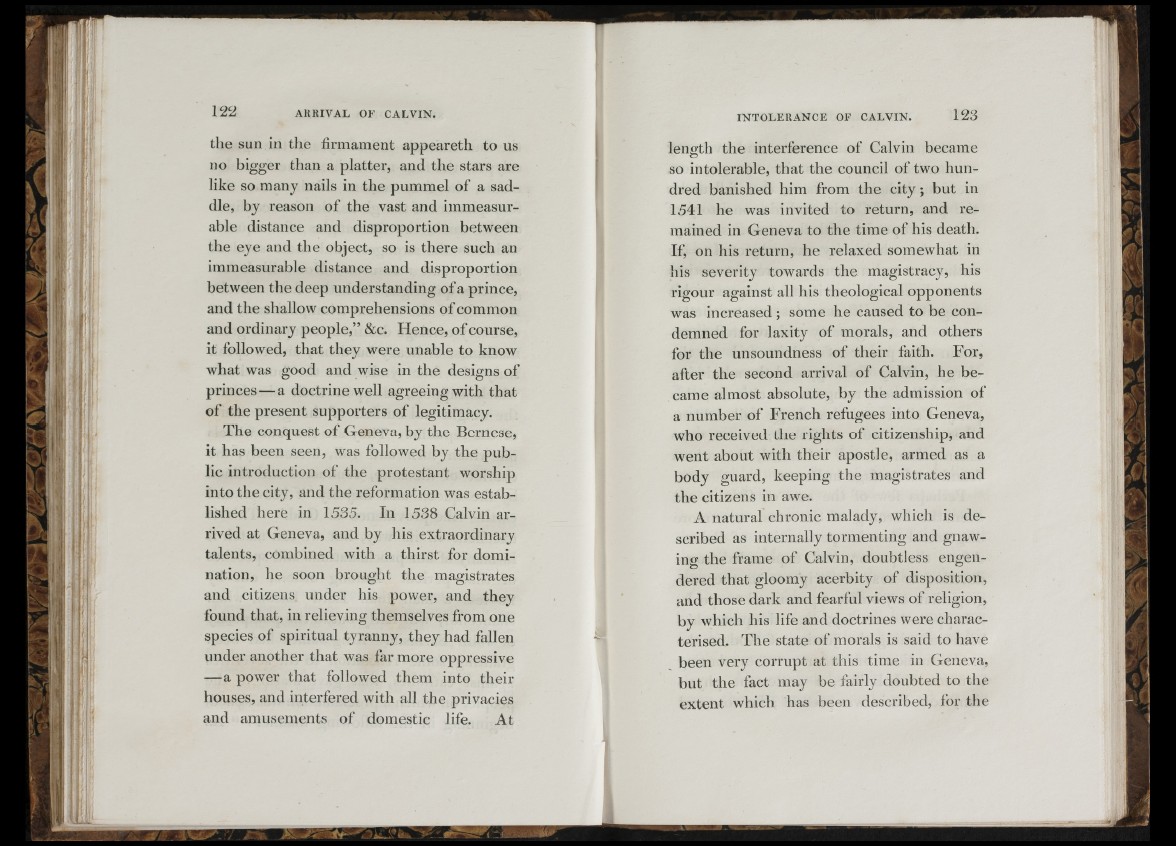
Süi:
the sun in the firmament appeareth to us
no bigger than a platter, and the stars are
like so many nails in the pummel of a saddle,
by reason of the vast and immeasurable
distance and disproportion between
the eye and the object, so is there such an
immeasurable distance and disproportion
between the deep understanding of a prince,
and the shallow comprehensions of common
and ordinary people,” &c. Hence, of course,
it followed, that they were unable to know
what was good and wise in the designs of
princes — a doctrine well agreeing with that
of the present supporters of legitimacy.
The conquest of Geneva, by the Bernese,
it has been seen, was followed by the public
introduction of the protestant worship
into the city, and the reformation was established
here in 1535. In 1538 Calvin arrived
at Geneva, and by his extraordinary
talents, combined with a thirst for domination,
he soon brought the magistrates
and citizens under his power, and they
found that, in relieving themselves from one
species of spiritual tyranny, they had fallen
under another that was far more oppressive
— a power that followed them into their
houses, and interfered with all the privacies
and amusements of domestic life. At
leiip'th the interference of Calvin became C5
so intolerable, that the council of two hundred
banished him from the city ; but in
1541 he was invited to return, and remained
in Geneva to the time of his death.
If, on his return, he relaxed somewhat in
his severity towards the magistracy, his
rigour against all his theological opponents
was increased ; some he caused to be condemned
for laxity of morals, and others
for the unsoundness of their faith. For,
after the second arrival of Calvin, he became
almost absolute, by the admission of
a number of French refugees into Geneva,
who received the rights of citizenship, and
went about with their apostle, armed as a
body guard, keeping the magistrates and
the citizens in awe.
A natural chronic malady, which is described
as internally tormenting and gnawing
the frame of Calvin, doubtless engendered
that gloomy acerbity of disposition,
and those dark and fearful views of religion,
by which his life and doctrines were characterised.
The state of morals is said to have
been very corrupt at this time in Geneva,
but the fact may be fairly doubted to the
extent which has been described, for the